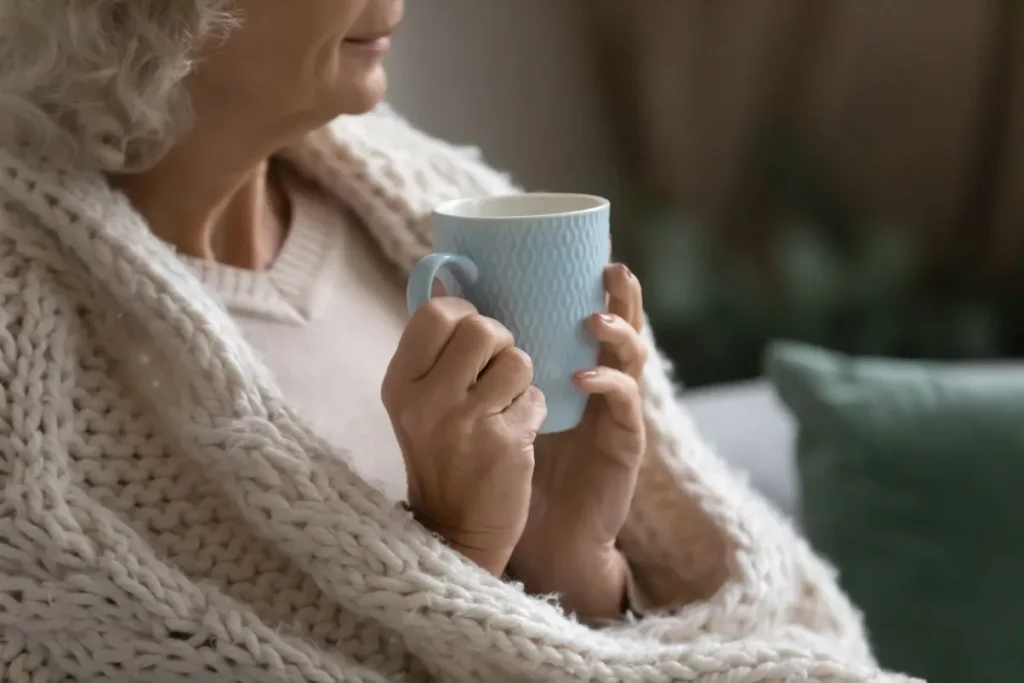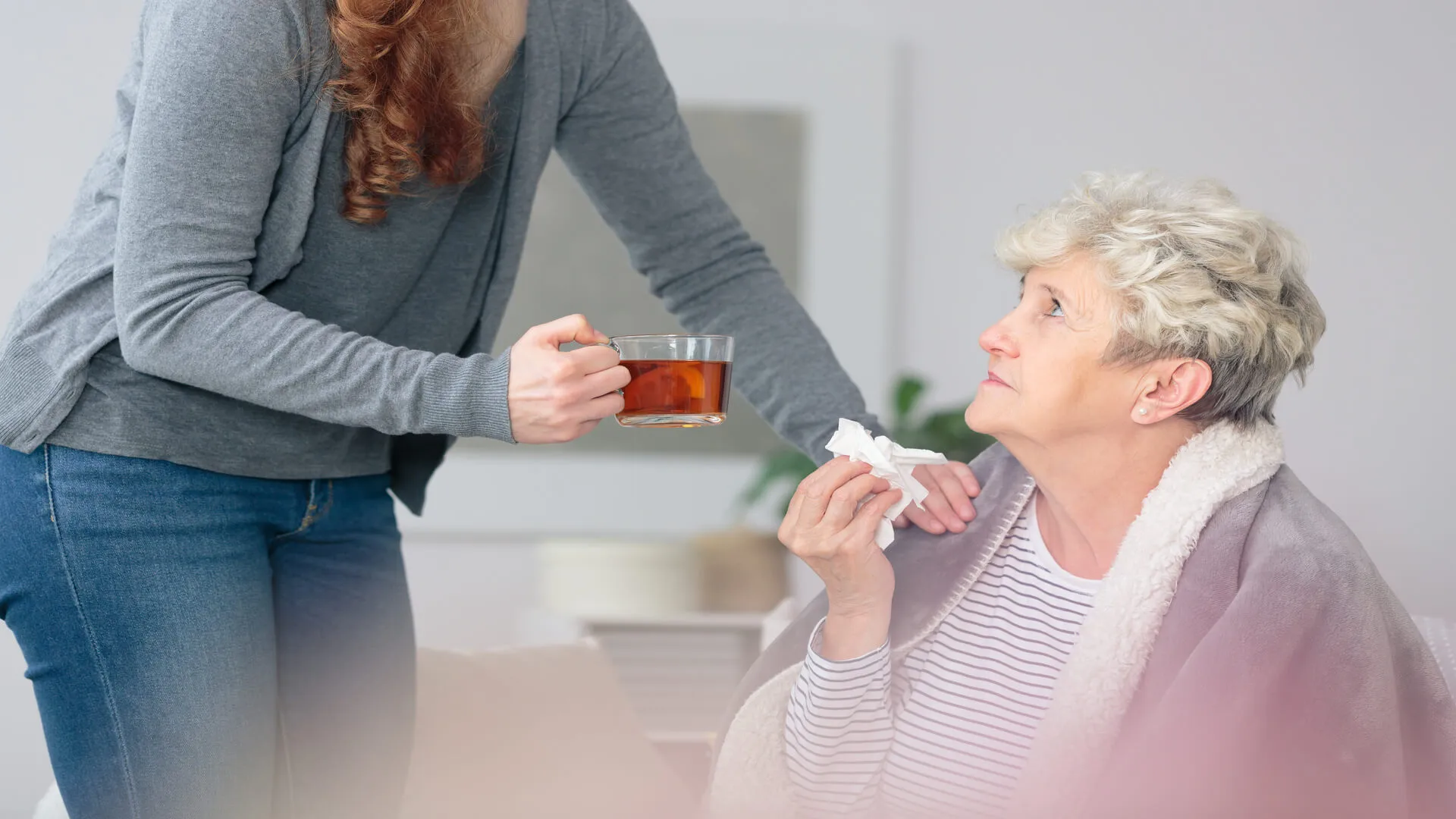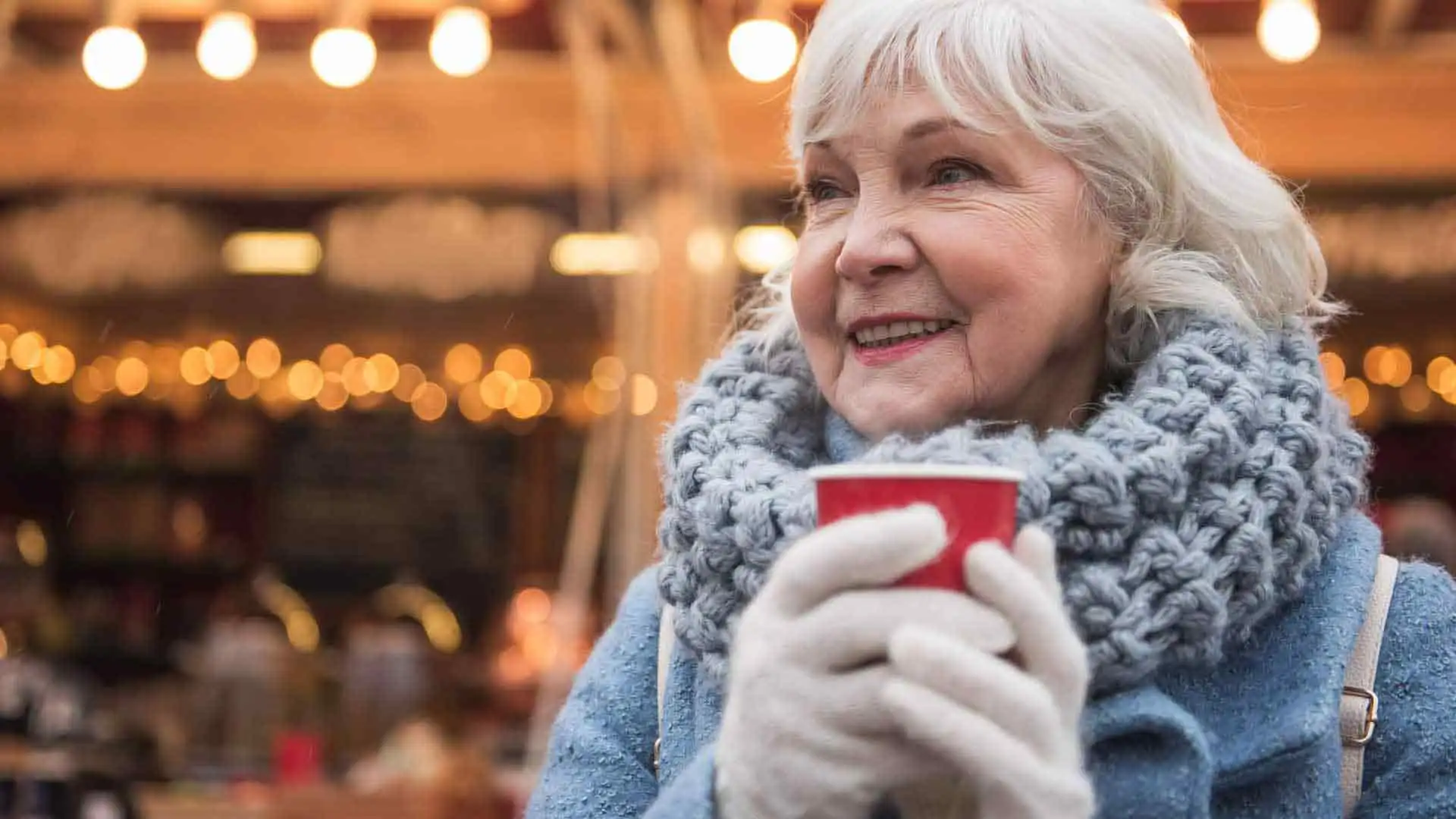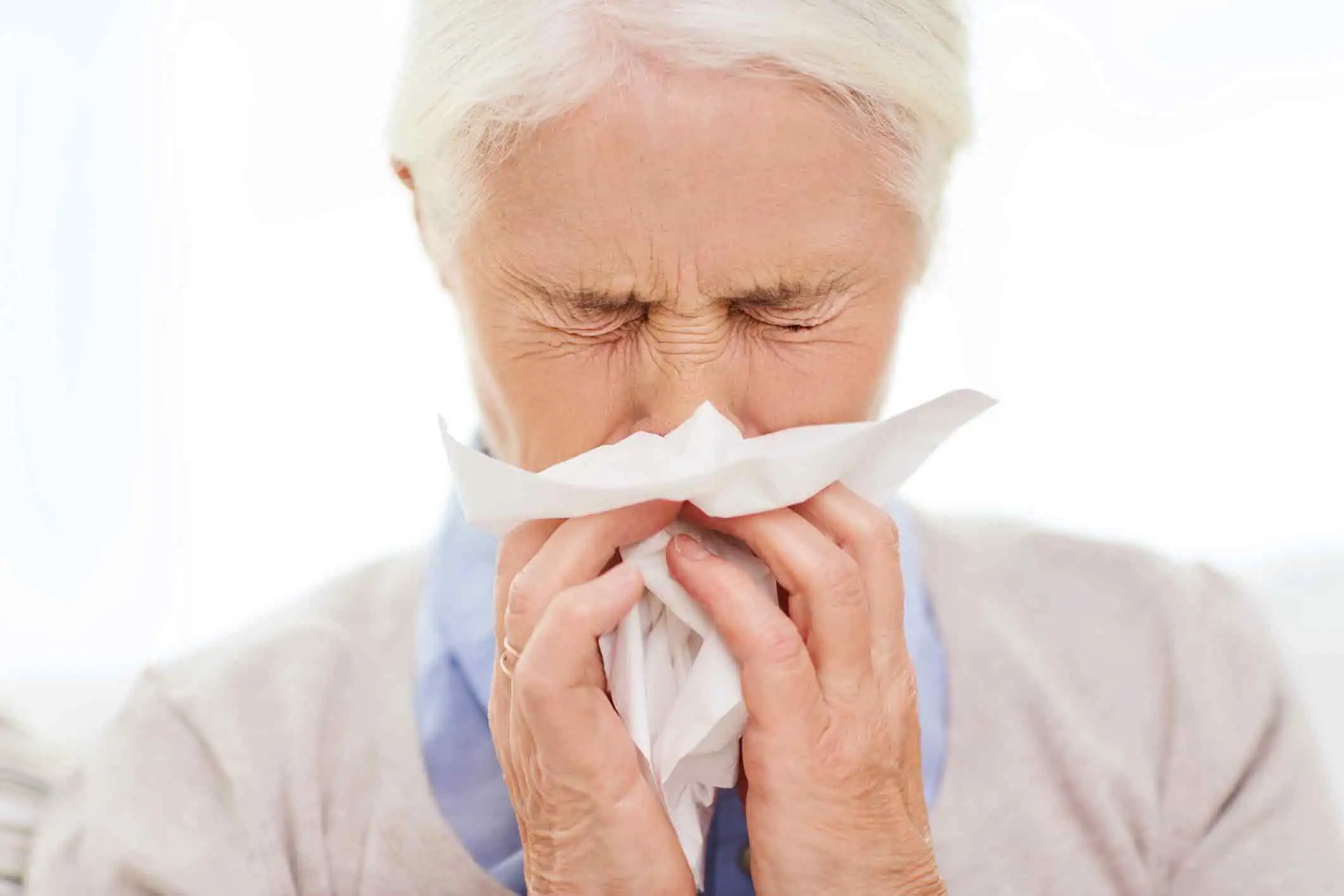
Caring for elderly in Cold Weather: Winter Safety tips
As the weather cools down, everyone, especially the elderly and children, needs special care. Caring for elderly in cold weather and winter prevents them from getting sick. Exposure to low or freezing temperatures can be harmful to anyone at any age. Among them, the elderly need more care than others. In addition to themselves, those around them must also observe certain points. Ensuring home safety for elderly is a very important aspect of elderly care services, If you want to avoid getting sick in the fall and maintain your health, following some tips about how to help keep the elderly warm and safe in winter will be helpful.
Observing personal hygiene largely protects you from respiratory diseases because most respiratory diseases are transmitted through contaminated objects. Humanhealthmag will further discuss some winter care tips for the elderly, preparing the elderly for winter, and review some common health problems that usually occur in autumn and winter.
Keeping Seniors Safe and Warm This Winter
During the colder seasons, the bodies of older adults are highly susceptible to various problems due to reduced physical activity and weakened immune systems. One common issue during this time is hypothermia (low body temperature), which can pose significant risks. Elderly individuals who are exposed to cold air for extended periods are unable to maintain their normal body temperature, and this can lead to a drop in their core temperature.
Hypothermia, frostbite, falls, and slips are among the most prevalent challenges in caring for the elderly during the winter. When older adults are exposed to the cold for a long time, their bodies lose their natural heat. In these situations, their body temperature can drop to dangerously low levels. Due to their age, seniors are naturally more prone to hypothermia (a drop in body temperature). Therefore, caring for the elderly in conditions where cold is difficult for them to tolerate should be of particular importance.

Caring for Elderly in Cold Weather: Warning Signs of Hypothermia in Older Adults
Hypothermia, or a drop in body temperature, is one of the most serious issues that elderly individuals may face. This problem can lead to severe impairments in bodily functions and even be life-threatening. Common signs of hypothermia in older adults include:
- Confusion and disorientation
- Drowsiness and decreased alertness
- Feeling weak and feeble
- Difficulty walking
- Slowed heart rate and breathing
- Excessive fatigue
- Cold and pale skin
Preventing Hypothermia: Winter Advice for the Elderly
Here are some cold weather safety for older adults, prevent hypothermia, and protect elderly individuals during cold weather:
- Keep the body and clothes dry. Moisture can significantly increase heat loss.
- Spend more time indoors during cold seasons. Limiting exposure to cold temperatures is crucial.
- Reduce the duration of time spent outdoors. Even short periods of exposure can be risky.
- Ensure seniors wear warm clothing. Layering is key to trapping body heat.
- Maintain a home temperature above 65°F (18.5°C). A warm indoor environment is essential.
- Use gloves, scarves, and hats when outdoors. These protect extremities and prevent heat loss from the head.
- Cover the mouth and nose when outside. This helps warm the air before it enters the lungs.
It’s important to note that individuals with conditions such as Alzheimer’s, stroke, Parkinson’s disease, kidney failure, diabetes, and brain tumors are at a higher risk of developing hypothermia.
Caring for Elderly in Cold Weather: How to Protect Seniors from Frostbite
How caring for elderly in cold weather? With continuous exposure to low temperatures, older adults are at risk of frostbite, which varies in severity. Seniors with heart conditions, circulatory disorders, and diabetes are more susceptible to frostbite. The signs of frostbite are as follows:
- Blistering on the skin’s surface
- Blackening of the areas affected by the cold
- Appearance of white, yellow, blue, or gray patches
- The initial signs of frostbite are a feeling of coldness and stiffness in the affected area.
- If the cold persists, gradually pain, a tingling sensation, numbness, and paleness develop
Some parts of the body are most at risk of frostbite are:
- Nose
- Chin
- Cheeks
- Ears
- Fingers

Preventing Frostbite: Essential Winter Care for Seniors
Here are important steps to caring for elderly in cold weather and prevent frostbite in older adults during winter:
- Place hands under the armpits. This helps to warm them using body heat
- Avoid rubbing frostbitten areas. Rubbing can cause further damage to the skin
- Warm the nose and ears with a hat and scarf. These protect vulnerable areas from the cold
- Cover all parts of the body when outdoors. Minimize exposed skin to prevent heat loss and frostbite
- Change out of wet clothing immediately. Moisture increases the risk of frostbite
- Seek warm shelter if you notice burning, paleness, redness of the skin, or shivering. These are early signs of cold-related issues.
- Do not directly heat frostbitten areas. Instead, gently warm the affected areas in lukewarm water for about 30 minutes
Preventing and Treating 7 Common Cold-Weather Illnesses in Seniors
As we mentioned, with increasing age, the physiological conditions of older adults become more fragile. In terms of vulnerability, seniors become more similar to infants and young children. They require more precise and regular care, especially when faced with unusual conditions, such as the arrival of autumn and winter with decreasing temperatures and changing weather conditions that affect even younger individuals, let alone the elderly! In this following, we will examine important health and care tips for seniors against common cold-weather illnesses.
1 – Reducing Knee Pain with Massage
In low temperatures, blood vessels deliver less blood to the knee joint. For winter care for seniors with a history of arthritis, movement disorders and knee inflammation are more common in cold seasons. Using topical ointments and massage increases blood flow to the knee and reduces pain.
2- Coughs and Colds
Coughs and colds are very common during the cold seasons. While a cold can make you feel unwell for a few days, it is not life-threatening.
Treating Coughs and Colds
The common cold virus cannot be treated with antibiotics, so an examination is usually not necessary. You should only consult your doctor if the senior’s cold persists for several days without any improvement. You can use a tissue to cover sneezes and coughs, then discard the tissue and wash your hands to kill and eliminate any remaining viruses. If you have a fever that does not improve with paracetamol, or if you experience difficulty breathing, you should see a doctor immediately.

People with asthma may find their breathing irritated on cold and humid days. If you have asthma and experience symptoms at night or if the symptoms interfere with your daily activities, you should definitely see a doctor. The doctor will review your current medications and may prescribe a dose of steroids to help your breathing if necessary.
3- Winter Care for Seniors: Influenza (Flu)
Influenza has a very negative impact on health. The flu is dangerous for children, the elderly, and those with respiratory illnesses. Symptoms that distinguish the flu from a cold include:
- High fever
- Increased breathing rate
- Severe coughs
- Muscle pain that usually prevents you from getting out of bed
Treating the Flu for Winter Care of Seniors
- Drink plenty of fluids
- Use over-the-counter pain relievers
- Consult a doctor if there is no improvement to receive antiviral medications
Preventing the Flu for Winter Care of Seniors
Receiving an annual flu vaccine is helpful for winter care for seniors and for those who are primary caregivers of an elderly person.
4 – Winter Care for Seniors: Throat Infection
Viral infections occur due to the spread of throat infections. If your throat becomes infected, you will experience pain and inflammation.
Treating Throat Infections for Winter Care of Seniors
- Use some over-the-counter medications to soothe a sore throat
- If you have a high fever, swollen and painful glands, and the presence of tonsillar abscesses, be sure to see a doctor
5 – Winter Care for Seniors: Eye Infection
If your eye becomes itchy, red, and has discharge, it may be due to conjunctivitis. You can treat conjunctivitis with several warm compresses or over-the-counter eye drops. However, if your eye pain worsens or you experience vision loss, you should see a doctor immediately.
Preventing Eye Infections
The best way to prevent eye infections is to wash your hands regularly. Also, if your hands are dirty, avoid touching your eyes.
6 – Diarrhea and Vomiting
Some viruses can cause outbreaks of diarrhea, vomiting, or both. Washing hands is the best way to prevent this spread. To prevent the spread of the virus causing these symptoms, it is best for infected individuals not to return to work or school until 48 hours after their recovery.
7 – Mental Health of Seniors in Cold Seasons
As the nights get longer, some individuals may experience mood problems and increased anxiety. Having a healthy diet along with a vitamin D supplement can help combat this issue. Try to incorporate exercise into your daily routine, as this also helps boost serotonin levels. If you feel depressed, it is best to talk to a specialist doctor for help.

Nutritional Tips for Caring for Elderly in Cold Weather
Nutrition is most important in caring for elderly in cold weather. Elderly individuals are consistently at a higher risk of malnutrition compared to other age groups. Malnutrition poses a greater threat to seniors during the colder seasons. It increases their susceptibility to illnesses such as colds and influenza. To provide proper winter care for seniors, we must focus on we must focus on healthy diet for ederly digestion and strengthening their immune systems. The following immune boosting foods for elderly help boost their immune system:
- Daily consumption of soup
- Consumption of milk and dairy products
- Engaging in physical activity
- Eating all main meals
- Using steamed vegetables
- Increasing the frequency of meals
- Consuming various meats, seeds, and fiber-rich grains
- Eating at least three servings from the four main food groups
- Including fruits and vegetables, such as oranges, lemons, grapefruits, potatoes, carrots, squash, spinach, cabbage, and broccoli.
Concluding Remarks
Elderly individuals require special care during the cold season to stay safe from common illnesses. Following nutritional guidelines, taking simple preventive measures, and seeking timely medical attention can be highly effective in maintaining their health. Caring for elderly in cold weather and winter is not only a humanitarian duty but also significantly contributes to preserving their quality of life.
Loved this article? Or do you have suggestions to make it even better? Please share your thoughts in the comments below, and let’s work together to build better content!

Frequently Asked Questions
Why are older adults more susceptible to cold-related illnesses?
Older adults often have reduced physical activity, slower metabolism, and impaired circulation, making it harder for their bodies to generate and retain heat. Additionally, their immune systems may be weaker, making them more vulnerable to infections like the flu and pneumonia, which tend to circulate more in colder months. Chronic conditions such as diabetes and heart disease can further compromise their ability to regulate body temperature and fight off illness.
What are the most important things to monitor in an elderly person during cold weather?
It’s crucial to monitor their body temperature for signs of hypothermia, such as confusion, shivering, and drowsiness. Also, observe their skin for any signs of frostbite, like numbness or discoloration, especially on extremities like fingers, toes, ears, and nose. Pay attention to any respiratory symptoms like coughing or shortness of breath, which could indicate a cold or flu. Finally, be mindful of any changes in their mobility or an increased risk of falls due to icy conditions.
How can I help keep an elderly person’s home warm enough in the winter?
Ensure their home’s thermostat is set to a comfortable and safe temperature, ideally above 65°F (18°C). Check for drafts around windows and doors and seal them with weather stripping or caulk. Encourage the use of layered clothing indoors, even if the house feels warm, and provide blankets or throws for extra comfort. If they are on a limited income, explore available heating assistance programs to help manage energy costs.
Besides staying warm, what other precautions should be taken to protect elderly individuals in cold weather?
Encourage them to stay indoors during extremely cold weather or icy conditions to prevent falls. Ensure they maintain a healthy diet and stay hydrated to support their immune system. Remind them to get their annual flu shot and consider the pneumonia vaccine as recommended by their doctor. Finally, maintain social contact to prevent isolation and monitor their overall well-being, as loneliness and depression can be exacerbated during winter.
